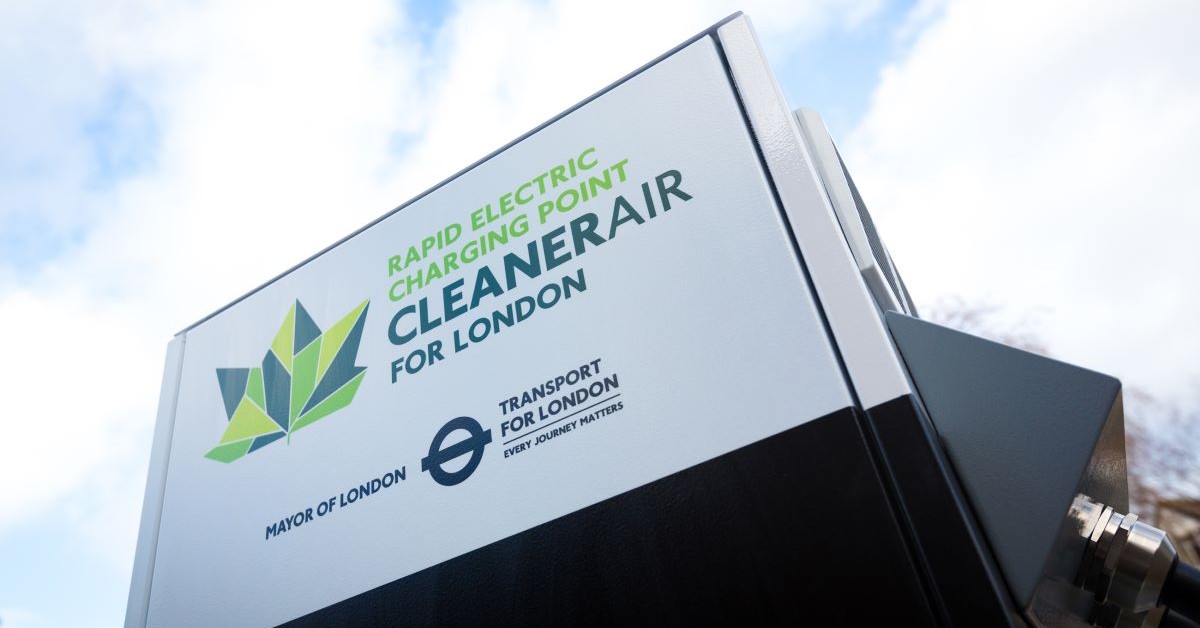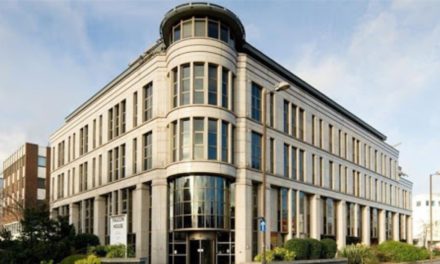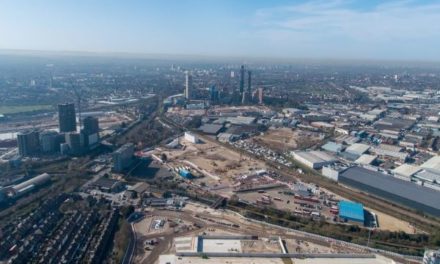Transport for London (TfL) has awarded Zest a contract to roll out 39 new electric vehicle (EV) charging bays across 24 locations in south and southwest London by the end of 2024, including the London boroughs of Richmond, Wandsworth, Hammersmith and Kingston.
The charging infrastructure will be placed in parking bays near key routes for essential road journeys typically made by high-mileage commercial users, including taxis and freight.
Part of TfL’s EV Infrastructure Delivery Programme, these new EV charging bays further expand London’s charging network. The Mayor is fulfilling his pledge to unlock land owned by TfL and other members of the Greater London Authority, including the London Fire Brigade, the London Ambulance Service, and the Metropolitan Police, as well as partners in the NHS, to increase the density of the rapid charging network across the city. This innovation sees TfL take public land to the private market to help bring the infrastructure needed to keep London at the forefront of the electric vehicle revolution.
London leads the UK in taking up electric vehicles, with 103,000 plug-in electric cars and vans already registered in the capital. With nearly 13,000 charge points, London currently has 31 per cent of all EV charging infrastructure across the UK, more than any other UK region. This is partly due to TfL and the Mayor’s commitments to see London continue leading the way in the UK. Since 2019, the Mayor has helped London’s charging network grow by 180 per cent. London is on track to meet the target of 40,000-60,000 charging points by 2030, but to facilitate this ambitious goal, the Mayor wants to go further by facilitating space for 100 new rapid charge points.
As of February 2023, London has the most public rapid charge points of any European city. Around 880 of the thousands of EV charging points across the capital are rapid or ultra-rapid charging points that deliver a full charge within 30 minutes, including 300 provided by TfL. The number of rapid charging points across the capital also includes London’s 26 rapid charging hubs that work like petrol stations for electric cars.
David Rowe, TfL’s director of Investment Delivery Planning, said: “These 39 bays are the start of our new programme to boost the number of rapid charging points in the capital by making public land available to private sector providers to support those making the switch to zero-emission vehicles. More rapid charging points are vital to encouraging people and businesses to transition to electric vehicles, giving drivers confidence that they have a place to power up in a short period. We’re glad to be working with Zest UK to expand the number of EV charging points across the capital, adding to the city’s extensive network.
“As we work towards the Mayor’s commitment to achieving Net Zero carbon by 2030, we hope the easier access to rapid and ultra-rapid charging points will encourage those who need to drive in the capital to consider the greenest vehicles for their next car or van which will have the most significant impact in cleaning up London’s toxic air and tackle climate change.”
Shirley Rodrigues, deputy mayor for Environment and Energy, said: “These new electric vehicle charge points will make it quick, easy and more convenient for Londoners in south and southwest London to charge their vehicles, enabling more people to switch to greener cars with more confidence.
“Electric cars are just one of the ways we can help to clean up London’s air and reduce harmful, toxic emissions, and for us to meet our ambitious net-zero targets.”
Robin Heap, the Zest CEO, said: “The UK needs an injection of serious infrastructure to meet its net zero goals, and it is farsighted public sector organisations who are taking the lead. Placing rapid and ultra-rapid charging points directly onto London’s high-volume arterial roads will make it easier for drivers to choose electric and improve the air quality for local communities. We’re looking forward to providing and operating these charge points in partnership with Transport for London.”
As part of its Electric Vehicle Infrastructure strategy, TfL’s modelling predicts that if current demand continues, the city will need at least 1,600 rapid charge points by 2025 and up to 3,900 by 2030. To help achieve these numbers, TfL is looking at bringing more of its land into use for EV charging bays and is working with other members of the GLA family and borough councils to bring further sites across London.
TfL is working to bring as many EV charging bays as possible to London’s streets as quickly as possible to ensure enough charging points for the demand. The Office for Zero Emission Vehicles announced in late March that London had been allocated £35.7m funding for Local EV Infrastructure (LEVI) Capital funding. This is additional to the £9.7m LEVI pilot funding awarded in the last financial year, which will see 400 fast charge points introduced in boroughs across north and west London, alongside additional government funding awarded to boroughs through the On-street Residential Charge point Scheme.
The hub in south London is part of TfL’s strategy to have a rapid charging hub in every one of the capital’s five sub-regions, north, south, east, west and central.
In recent months, two additional hubs have been brought to London, MFG Collier Row and Euro Garages’ hub at Heathrow North. These hubs house 14 rapid charging hubs between them, bringing new charging options to EV drivers.
© London West (powered by ukpropertyforums.com).
Sign up to receive our weekly free journal, The Forum here.








